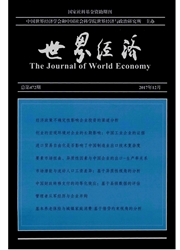

 中文摘要:
中文摘要:
Akerlof从经济学角度提出身份认同理论,强调身份与社会规范对应,影响人的行为。本文从家乡身份的视角把省级官员与其县级籍贯相匹配,采用省级官员辖区外的籍贯县样本,识别省级官员的家乡身份认同,检验身份认同假说。本文以1992—2012年的夜间灯光亮度代理经济发展水平,通过经验分析发现,省级官员在任期间,其辖区外家乡县的夜间灯光亮度提高约8个百分点,市内相邻县提高约1.8个百分点,市外相邻县则没有显著的变化。本文的结论稳健,揭示了身份认同等文化因素是影响经济发展的深层因素。
 英文摘要:
英文摘要:
We test the hypothesis that identity can constrain behavior with prescriptions. Using a new dataset on 2206 counties matched with exogenous hometowns of provincial leaders and the NOAA's luminosity as the proxy for economic growth, we conduct a difference-in-difference estimation, and find that, on average, the provincial leaders significantly increase the economic growth in their hometowns by about 8 percent. The finding is robust, and highlights that identity is one of deep-rooted factors in China's economic growth. Key words: identity, luminosity, economic growth
 同期刊论文项目
同期刊论文项目
 同项目期刊论文
同项目期刊论文
 期刊信息
期刊信息
